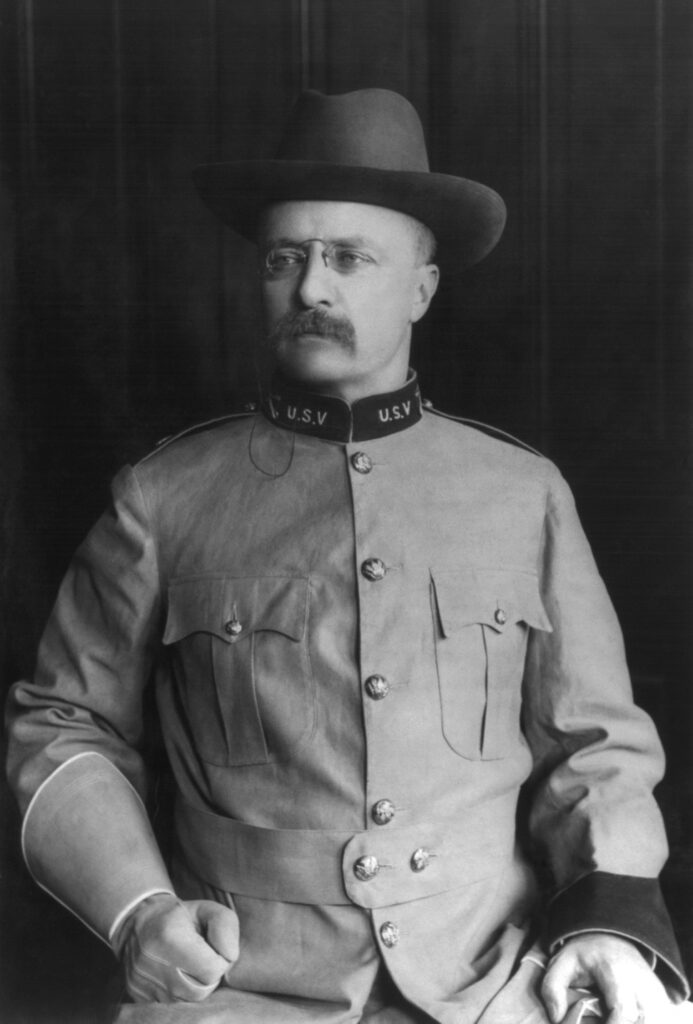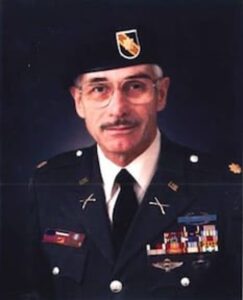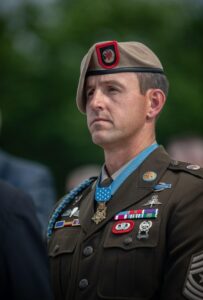An Unmatched Integrity and Dedication to Service
Meet MOH Recipient Theodore Roosevelt
Although Theodore Roosevelt is well-known for his love of the outdoors and his two presidential terms, his military service during the 1898 Spanish-American War is often overlooked. Prior to the war’s beginnings, Roosevelt worked as an assistant secretary of the Navy in the New York National Guard. But he wanted the opportunity to personally contribute to the cause and to free Cuba from Spanish rulers. He yearned to be a part of the action, and to be up close in the thick of the battlefield.
After much back-and-forth discussion, Roosevelt convinced the secretary of war to give him a commission in the US Army. He earned a role as lieutenant colonel of the 1st US Volunteer Cavalry Regiment, affectionately known as the “Rough Riders.” They set out for Cuba, blissfully ignorant of the critical fight that would make or break the outcome for Cuba — and America’s fate in the war.
An Uphill Battle Like No Other
On July 1, 1898, then-Lieutenant Colonel Roosevelt led his men up San Juan Hill, near Santiago de Cuba in Cuba. Without personal regard for his safety, Roosevelt began the charge, moving swiftly and quickly despite heavy enemy fire raining down and no coverage or protection in the wide-open fields. He was the first soldier to reach the enemy trenches, and he eliminated one enemy fighter with his pistol, which allowed the remaining men to continue the attack. Roosevelt’s heroic bravery and fearless integrity helped turn the tide in the Battle of San Juan Hill and gave America the positive reinforcement it needed during the Spanish-American War.
Bestowing the Greatest Distinction
Although President Abraham Lincoln is credited with approving the Medal of Honor in 1861, it’s less widely known how the fanfare and presentation ceremony were initiated. For that, credit goes to Roosevelt. In 1905, during his presidency, Roosevelt signed an Executive Order stating that the Medal of Honor was to be awarded with formality and ceremony and that the recipient should be ordered to Washington, D.C., when applicable, to receive the Medal directly from the President or another representative. “I feel the Medal of Honor is the greatest distinction upon any American,” Roosevelt stated. “I should be more proud than I can say to have earned it myself.” Thus, the pomp and circumstance of the award was merited and recorded for future Recipients.
Though they foreshadowed future events, many decades would pass before Roosevelt’s words would come to fruition and his actions would be considered for the Medal of Honor. But on January 16, 2001, President Bill Clinton posthumously awarded the Medal to Roosevelt for his brave, valiant actions on San Juan Hill in 1898. In 1944, Roosevelt’s son, Brigadier General Theodore Roosevelt Jr., was also posthumously awarded the Medal for his selfless service and gallant sacrifice on the beaches of Normandy, France, during World War II. To this day, Roosevelt remains the only American president to be awarded the Medal, and the pair are one of only two father-son duos to receive the honor.




